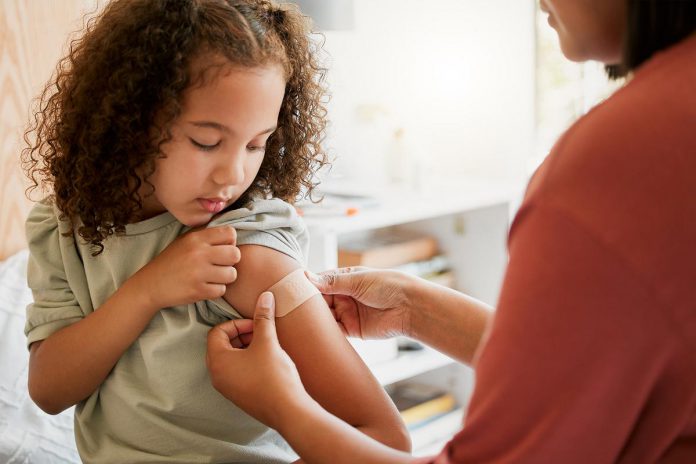As the number of measles cases continues to climb in Ontario, the health unit serving the City of Kawartha Lakes, Northumberland, Haliburton, and Peterborough counties is preparing for the arrival of the contagious respiratory infection, Dr. Natalie Bocking said.
Dr. Bocking, deputy medical officer of health for the Haliburton Kawartha Northumberland Peterborough Health Unit (HKNP), shared an update on Thursday (May 15) with board of health members during HKNP’s board of health meeting held in person in Hiawatha First Nation and streamed live on YouTube.
“Over the last two to three weeks, on a weekly basis we’re seeing anywhere from 150 to 200 new cases per week across the province,” Dr. Bocking said.
The majority of those cases are associated with an outbreak that started in the fall of 2024 and is continuing to date.
Within that outbreak, there are 1,622 cases in Ontario and 94 per cent of those cases encompass those who have not been vaccinated at all or have unknown immunization status, Dr. Bocking noted.
“This is an outbreak that is impacting people who are not vaccinated and not protected against the measles virus,” she said. “Unfortunately, today there have been 119 hospitalizations admissions associated with this outbreak, so this is a pretty significant number for our region and the province overall.”
Dr. Bocking said the majority of cases reported continue to be in southwestern Ontario.
“We have not had a case across the City of Kawartha Lakes, the counties of Northumberland, Haliburton, Peterborough or city of Peterborough,” she noted, adding “I think we should not be surprised if we do see a case.”
“We certainly have had individuals who have been exposed (through gatherings in other communities where a case has been identified). So as the health unit, we continue to plan and prepare for when a case may or will likely arrive.”
Dr. Bocking said the HKNP Health Unit is continuing to spread the word about the importance of immunization through its websites and social media channels. It is also reaching out to organizations that are more likely to see measles, such as those working with groups of children.
“Our region hosts a large number of recreational summer camps,” Dr. Bocking shared as an example. She said HKNP employees are connecting with camp operators to ensure they’re aware of how to protect campers and staff, and what to expect should there be a case of measles.
She encouraged all members of the board of health “to continue to promote vaccination as the most important way to prevent measles infection.”
Measles is a serious respiratory infection that is highly contagious. People with measles spread the virus by coughing or sneezing into the air. It can also be transmitted by touching your eyes, nose, or mouth after touching an infected surface. Symptoms of measles include fever, a red blotchy rash, red watery eyes, and cough.
According to Public Health Ontario, measles can have serious complications, especially for babies and young children, including ear infections, pneumonia, encephalitis (brain swelling), and even death. While most people recover, the illness can weaken the immune system and make individuals more susceptible to other infections.
Public Health Ontario says getting vaccinated “is the best way to protect yourself against measles.” For children and most adults born after 1970, this means receiving two doses of a measles-containing vaccine (e.g., MMR vaccine). People travelling outside of Canada should ensure they are adequately protected through vaccination prior to travelling.



























